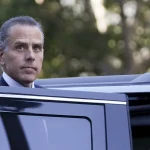

Proponents of a bill that seeks to prohibit OPEC producers and its allies from coordinating production and influencing prices are hoping the third time is the charm as they seek to advance legislation that’s languished in Congress for nearly two decades.
Members of the Senate Judiciary Committee voted Thursday to approve a bill known as NOPEC, the No Oil Producing and Exporting Cartels Act, which would enable the U.S. government to sue OPEC or OPEC+ members for violating antitrust law and trying to control oil production.
The bill, sponsored by Sens. Chuck Grassley (R-IA) and Amy Klobuchar (D-MN), advanced to the full chamber for a vote Thursday after members of the committee voted 17-4 to approve it.
It’s not clear if the bill will be brought to the floor for a vote — or if President Joe Biden would sign off on the legislation if it passed. Senate Majority Leader Chuck Schumer’s (D-NY) office declined to respond to a request for comment on when, or if, the legislation would be brought for a floor vote.
The effort has long been unpopular in the White House. But it has moved in Congress at least twice before. The full House and Senate last advanced the NOPEC legislation in 2007, but it stalled under veto threat by then-President George W. Bush. Former President Barack Obama also opposed the legislation.
The Senate Judiciary Committee also approved a version of the NOPEC bill in 2019, but it was never brought to the chamber for a full vote.
But some lawmakers and industry groups have warned that the legislation, intended to protect U.S. consumers and companies, could have intended consequences — and risks backfiring on domestic oil and gas producers as well.
Both the American Petroleum Institute and the U.S. Chamber of Commerce have announced their opposition to the bill.
In a letter to leaders of the Senate Judiciary Committee this week, API wrote that the NOPEC legislation “creates significant potential detrimental exposure to U.S. diplomatic, military and business interests while likely having limited impact on the market concerns driving the legislation.”
DOJ LAUNCHES NEW OFFICE OF ENVIRONMENTAL JUSTICE
Asked about the NOPEC legislation yesterday, White House press secretary Jen Psaki said the White House is still studying the bill and cited concerns over the “potential implications and unintended consequences” the legislation might have on the global energy market, especially amid the crisis in Ukraine.
CLICK HERE TO READ MORE FROM THE WASHINGTON EXAMINER
“Obviously, our objective is ensuring the supply in the oil markets meets the demands,” Psaki added. “OPEC has a role to play there. We’ve obviously been working with them and have had a great deal of engagement with them even prior to President Putin’s invasion of Ukraine.”





